It was a celebration of Britain like no other.
Just over seven years after London was awarded the 2012 Olympics, the eyes of the world were on the Olympic Stadium for the opening ceremony of the Games.
Danny Boyle, the Oscar-winning director of Trainspotting and Slumdog Millionaire, welcomed the world to the capital city with a spectacular show of BritainвҖҷs industrial and cultural contributions to the world.
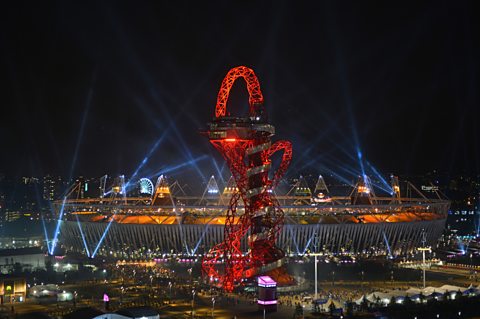
Around one billion viewers tuned in across the globe. With so many nods to BritainвҖҷs past, some of the references may have been more obscure than others, especially for younger viewers.
So, with the chance to watch it again, what was it all about?
The ceremony's name: Isles of Wonder
Literature and BritainвҖҷs greatest authors are referenced throughout the opening ceremony. Even its name, 'Isles of Wonder' pays tribute to William Shakespeare.
Boyle said the title was inspired by a quote from Caliban in ShakespeareвҖҷs The Tempest that refers to an "isle full of noises."
CalibanвҖҷs speech was also inscribed on the Olympic Bell within the stadium - specially commissioned for the Games, it is the largest harmonically tuned bell in the world at an impressive two metres high, with a diameter of 3.34 metres.
Green and Pleasant Land: A celebration of rural Britain
The in-stadium action began with a traditional British village scene, before a welcome by choirs singing songs representing the four home nations.
Danny Boy, Flower of Scotland, Bread of Heaven and Jerusalem were sung for Northern Ireland, Scotland, Wales and England respectively - with the lyrics and themes of one of the four songs repeated and referenced throughout the ceremony.
William BlakeвҖҷs poem And did those feet in ancient time, was the preface for his book Milton and was later set to music by Hubert Parry in 1916 and named Jerusalem with an orchestration written by Sir Edward Elgar.
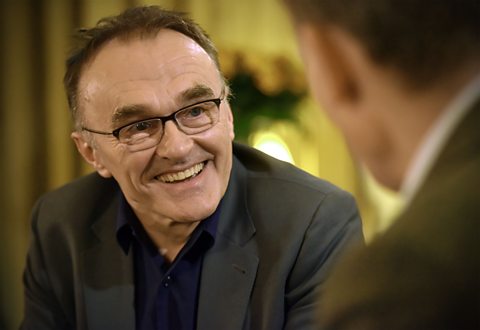
The poem was said to be inspired by the Glastonbury legend that one of JesusвҖҷ relatives, Joseph of Arimathea had visited the Somerset town with a young Jesus. This was represented further in the ceremony by a mound resembling the hill known as Glastonbury Tor within the stadium - the green and pleasant land that gave this section of the performance its name.
Actor Kenneth Branagh stepped onto the hill playing Isambard Kingdom Brunel, the 19th Century civil engineer credited with being one of the leading figures in the industrial revolution.
Returning to The Tempest once more, Branagh read in full CalibanвҖҷs speech to herald, as the ҙуПуҙ«ГҪ described вҖңthe chaos and the noise of the industrial revolution, the brutal uprooting of rural Britain.вҖқ
Pandemonium: Green fields give way to industry
The cast started to remove the meadow set in a section titled Pandemonium - named in honour of 17th Century poet John Milton, who coined the term as the name for the capital of hell in his epic poem Paradise Lost.
As smokestacks rose from the ground representing the dark satanic mills that Blake refers to in Jerusalem, the Suffragettes, the women who fought for the right to vote in elections, entered the stadium.
As well as giving the Suffragettes a deserved mention in British history, their entrance is also another reference to Jerusalem вҖ“ with composer Parry gifting the copyright to the piece to the National Union of WomenвҖҷs Suffrage Societies in support of their cause, shortly before his death in 1918.
The action paused momentarily for a period of silence in memory of those who lost their lives in the world wars вҖ“ with the names of the Accrington Pals displayed on screen.
Pals battalions were groups of men who enlisted in the army for World War One with the aim of serving together and the Accrington Pals, as their name suggests, came from the East Lancashire town and surrounding areas.
They were part of the British efforts at the Battle of the Somme in 1916, with 235 men killed and 380 wounded from the battalion within the first 30 minutes of conflict.
Viewers also saw the Jarrow Crusaders вҖ“ a group of men who marched from Jarrow, near Newcastle, to London to protest against the rising unemployment and poverty in the town, a demonstration credited with ultimately playing a part in leading to social reforms in the aftermath of World War Two.
Real-life Pearly Kings and Queens and Chelsea Pensioners were represented. The pearlies are an iconic symbol of working-class London, identified by wearing pearls on their clothing and known for their charitable contributions throughout the capital.
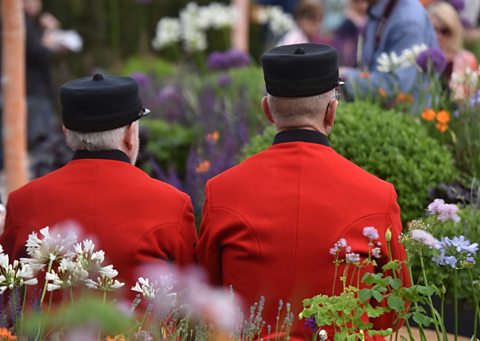
Similarly instantly recognisable in their traditional red uniforms, the Chelsea Pensioners were, until 1955, the name given to all army pensioners as their retirement funds were administered by and paid from the Royal Hospital Chelsea.
As well as dozens of characters representing The Beatles on the cover of Sgt. PepperвҖҷs Lonely Hearts Club Band, we also see the first Caribbean immigrants arriving in 1948 on board the Empire Windrush.
The ship was travelling from Australia to London and docked in Jamaica to pick up servicemen on leave. Around 800 people joined the ship from the Caribbean, with their disembarkment, as depicted in the ceremony, a major news event at the time. The term 'Windrush GenerationвҖҷ was coined to represent those born in the West Indies who came to settle in the UK.
Second to the right and straight on till morning: A tribute to childhood books and healthcare
Following the QueenвҖҷs вҖҳskydiveвҖҷ into the stadium, Boyle dedicated the next section of the ceremony to British childrenвҖҷs literature and the NHS.
The director said he wanted to celebrate the National Health Service as he believed it did more to unite the nation than any other institution. But why the link with childrenвҖҷs literature?
Boyle chose to focus on the work of the infamous Great Ormond Street Hospital, the first-ever inpatient childrenвҖҷs hospital that opened in 1852.
This part of the ceremony took its title (Second to the right and straight on till morning) from Peter Pan, whose author JM Barrie bequeathed all the bookвҖҷs royalties to the hospital in 1929.
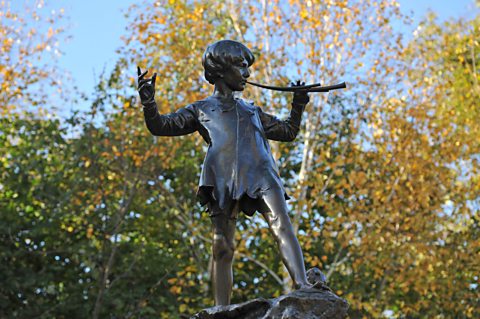
32 versions of Mary Poppins descended with their umbrellas to ward off villains from childrenвҖҷs literature including the Queen of Hearts, Cruella de Vil and Lord Voldemort.
Frankie and June say Thanks Tim: A story of love through the ages
Following Rowan Atkinson's part in celebrating British film history with the Chariots of Fire theme, we were then introduced to a segment celebrating one of BritainвҖҷs greatest ever inventions as well as its popular music and culture.
There are too many references to mention in the love story between teenagers Frankie and June, but key moments include:
- The rain pours seconds after a clip of the infamous Michael Fish вҖҳhurricaneвҖҷ weather forecast is shown. FishвҖҷs report played down the risk of a hurricane in 1987, just hours before the worst storm in three centuries hit south east England
- As Frankie and June walk towards each other, the cast sings вҖҳIвҖҷm Forever Blowing BubblesвҖҷ вҖ“ a song most commonly known for being the anthem of West Ham United. The Hammers were then based just a few miles away from the Olympic Stadium at Upton Park in the heart of East End London вҖ“ and four years later made the arena their new home ground
- As the characters kiss, a clip from former Channel 4 Liverpool-based soap opera Brookside was shown вҖ“ with Beth Jordache (Anna Friel) and Margaret Clemence (Nicola Stephenson) sharing the first pre-watershed lesbian kiss in British television history.
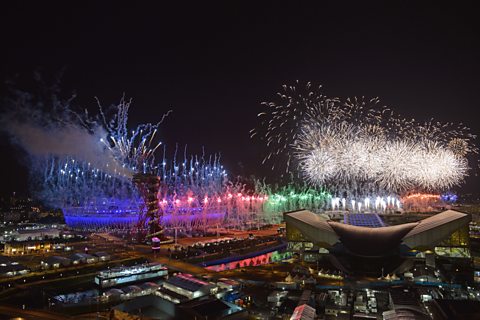
Finally the house was lifted to show Tim Berners-Lee, the inventor of the world wide web. His message, projected around the arena, reads вҖҳThis is for everyoneвҖҷ вҖ“ in recognition of the fact that he gifted the web to the world.
Ahead of the parade of athletes and musical performances from Arctic Monkeys and Sir Paul McCartney, there was one more poignant act.
Emeli Sande sang the hymn Abide With Me while a group of dancers performed a routine on the theme of mortality. Names and images of those unable to attend were displayed вҖ“ including the victims of the London bombings in 2005, which took place less than 24 hours after the city was awarded the Olympic Games.
The evening ended with the Olympic flame being lit and fireworks overhead. A spectacular start to the worldвҖҷs biggest sporting event вҖ“ a celebration of what it meant to be British and the perfect warm-up to two weeks of incredible medal-winning action.
This article was published in July 2020 and last updated in August 2024

'The world was watching and I was there'
People who played a part in the Coronation, Live Aid and London 2012
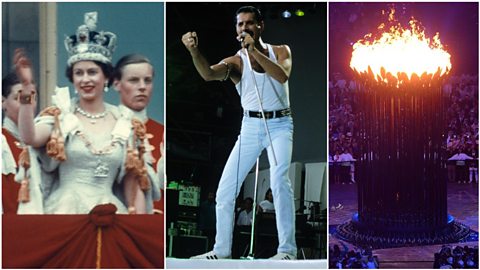
''I never thought skateboarding would even be in the Olympics"
Tokyo 2020 Olympic hopeful Alex DeCunha's skateboarding journey in his own words.

Quiz: Epic summer events in history
They may have been postponed this year but there is plenty to look forward to in summer 2021
